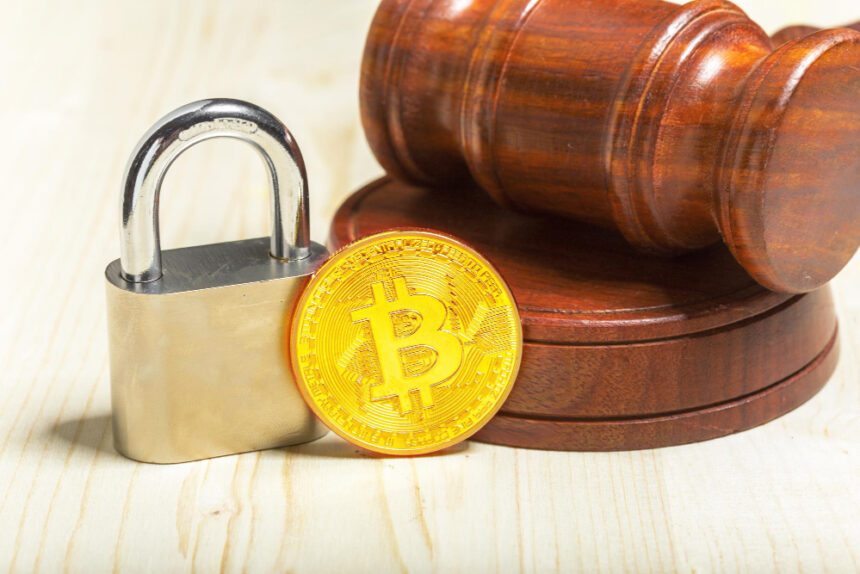In recent years, cryptocurrency has evolved from a niche digital asset to a mainstream financial instrument. As governments worldwide strive to regulate this dynamic industry, the demand for cryptocurrency regulatory compliance specialists has surged. These professionals play a critical role in ensuring businesses adhere to legal frameworks while navigating the complexities of digital finance.
Cryptocurrency regulation is an ever-changing landscape influenced by international policies, national laws, and evolving technology. From anti-money laundering (AML) requirements to tax compliance, businesses in the crypto space must comply with various regulatory mandates to operate legally. Consequently, experts in compliance are in high demand, making it an excellent career opportunity for professionals interested in law, finance, and blockchain technology.
The Importance of Regulatory Compliance in Cryptocurrency
Governments worldwide recognize the potential benefits and risks associated with digital assets. As a result, regulatory frameworks are being developed to prevent illicit activities, such as money laundering and fraud. Cryptocurrency regulation ensures the industry remains transparent, secure, and trustworthy for investors and users.
Without proper regulation, crypto markets could be susceptible to manipulation, financial crimes, and security threats. Regulatory compliance specialists help organizations maintain legal operations while mitigating risks. They also play a crucial role in establishing best practices that align with governmental policies and international regulatory standards.
Key Responsibilities of a Cryptocurrency Regulatory Compliance Specialist
A cryptocurrency regulatory compliance specialist is responsible for ensuring that a company adheres to all legal requirements related to digital assets. Some of their core duties include:
Monitoring Regulatory Changes: Keeping track of evolving cryptocurrency regulation worldwide and implementing necessary updates within the organization.
Developing Compliance Policies: Creating internal policies and guidelines to help businesses comply with existing regulations.
Conducting Risk Assessments: Identifying potential compliance risks and implementing strategies to mitigate them.
Ensuring Anti-Money Laundering (AML) and Know Your Customer (KYC) Compliance: Establishing procedures that prevent illicit activities by verifying user identities and monitoring transactions.
Collaborating with Legal Teams and Regulators: Working with internal legal counsel and government agencies to ensure full compliance with cryptocurrency regulation.
Training Employees on Compliance Measures: Educating staff members about the importance of following legal and regulatory guidelines.
Essential Skills for a Cryptocurrency Compliance Specialist
To succeed in this field, a cryptocurrency regulatory compliance specialist must possess a diverse skill set that combines legal expertise, financial acumen, and technical knowledge. Key skills include:
Understanding of Cryptocurrency and Blockchain Technology: Familiarity with how digital assets function and the mechanisms of blockchain networks.
Legal Knowledge: Proficiency in national and international cryptocurrency regulation, financial laws, and compliance standards.
Analytical Thinking: The ability to assess risks, interpret complex regulations, and develop appropriate compliance strategies.
Communication Skills: Strong verbal and written communication abilities to interact with regulators, legal teams, and company executives.
Problem-Solving Abilities: The capability to develop solutions for regulatory challenges and adapt to changing legal landscapes.
Global Cryptocurrency Regulatory Frameworks

Cryptocurrency regulation varies across different jurisdictions, making it essential for compliance specialists to understand global regulatory trends. Some major regulatory frameworks include:
United States: The U.S. Securities and Exchange Commission (SEC) and Financial Crimes Enforcement Network (FinCEN) oversee cryptocurrency compliance. Businesses must adhere to strict AML and KYC regulations.
European Union: The Markets in Crypto-Assets (MiCA) regulation aims to establish a unified framework for digital assets across EU member states.
United Kingdom: The Financial Conduct Authority (FCA) regulates cryptocurrency-related activities, emphasizing consumer protection and financial stability.
Asia: Countries like Japan and Singapore have established clear regulations, while others, such as China, impose strict bans on crypto activities.
Understanding these frameworks enables compliance specialists to guide companies through the regulatory requirements of different markets.
Career Opportunities in Cryptocurrency Compliance
The rising demand for cryptocurrency regulation specialists has opened numerous career paths in various industries, including:
Crypto Exchanges: Ensuring platforms comply with trading regulations and AML policies.
Financial Institutions: Assisting banks and investment firms in integrating digital assets into their services.
Government Agencies: Helping regulatory bodies develop and enforce cryptocurrency policies.
Consulting Firms: Advising businesses on best practices for compliance with cryptocurrency regulation.
Legal and Compliance Departments: Working within organizations to maintain adherence to financial laws and digital asset regulations.
How to Become a Cryptocurrency Regulatory Compliance Specialist
Aspiring professionals can follow these steps to build a career in cryptocurrency compliance:
Obtain a Relevant Degree: A background in law, finance, business administration, or information security can be beneficial.
Gain Knowledge in Blockchain and Cryptocurrency: Enrolling in specialized courses or obtaining certifications in blockchain technology and cryptocurrency regulation can enhance expertise.
Acquire Legal and Compliance Experience: Working in compliance, risk management, or regulatory affairs can provide valuable practical experience.
Stay Updated with Regulatory Changes: Keeping track of evolving cryptocurrency regulation is crucial for success in this field.
Network with Industry Professionals: Attending conferences, joining professional organizations, and engaging in online discussions can open career opportunities.
Future of Cryptocurrency Regulation and Compliance
As the cryptocurrency industry continues to grow, regulatory frameworks will become more refined and comprehensive. Future trends in cryptocurrency regulation may include:
Stronger International Coordination: Governments and financial institutions collaborating to create standardized regulations for digital assets.
Enhanced Consumer Protections: Stricter compliance measures to protect users from fraud and financial losses.
Integration with Traditional Finance: Greater adoption of cryptocurrency within banks and investment firms, requiring robust compliance strategies.
Regulated DeFi and NFTs: Governments seeking to regulate decentralized finance (DeFi) and non-fungible tokens (NFTs) to prevent illicit activities.
The role of cryptocurrency regulatory compliance specialists will remain critical in shaping the industry’s future, ensuring stability and security while fostering innovation.
Conclusion
A career as a cryptocurrency regulatory compliance specialist offers a unique blend of legal, financial, and technological expertise. As global regulations evolve, businesses need professionals who can navigate complex compliance challenges. With the growing adoption of digital assets, the demand for specialists in cryptocurrency regulation will continue to rise, making it a promising and lucrative career path.
By staying informed, acquiring relevant skills, and adapting to industry trends, individuals can position themselves at the forefront of cryptocurrency compliance, contributing to a safer and more transparent financial ecosystem.


